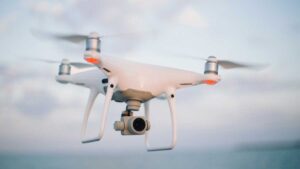NeuralDx is raising $1.5 million to commercialise its brain disorder detecting technology

Pic: Stevica Mrdja / EyeEm / EyeEm via Getty Images
The way we diagnose metal illnesses could take a radical shift if NeuralDx has its way. The company hopes it can diagnose them through neurological biomarkers — molecules or genes which can indicate the presence of diseases.
It may seem simple enough in theory, but in practice it’s anything but.
Plenty of companies use blood or urine tests to look at biomarkers for other parts of the body. One example is colorectal cancer detector Rhythm Biosciences (ASX:RHY).
But as CEO Roger Edwards said, “you cannot go in and take a sample of your brain,” and blood tests aren’t useful at detecting brain anomalies. Spinal taps might get close, but these are invasive. And while MRI and CAT scans aren’t really invasive, these are only used to exclude diagnoses.
Stockhead spoke with Edwards as his company launched a $1.5 million capital raise via crowd funding site OnMarket to manufacture a prototype device suitable for final validation clinical trials.
Simple but a long time coming
His company’s technology is a diagnostic test which is as powerful as it is non-invasive. The test involves putting electrodes in patients’ ears.
“We’re picking up signals that are evoked from the balance organ — one of the oldest senses we have and it’s part of the fight mechanism.
“The balance organ pings your brain 90 times a second and it’s asking ‘am I moving, is the world moving, am I safe’.”
He told Stockhead an ex-Cochlear engineer Brian Lithgow discovered this at Monash University. He found anomalies in the balance organs of subjects with Parkinson’s correlated with those of people with depression.
“We have had to document the science to prove that this is a reasonable hypothesis, we’ve tested and we’ve proven it,” he said.
“But we’ve now got a number of leading research institutes saying, ‘we would like to have a unit so we can work with you to validate this technology’.”
Right now, there’s only one clinical system of NeuralDx’s operating at a Manitoba Hospital attached to the university where Brian Lithgow is. But other institutions including hospitals in Rome and Canada had expressed interest in future involvement.
What now?
The company is raising another $1.5 million via crowd funding site OnMarket. It hopes to manufacture a prototype device suitable for final validation clinical trials.
“We’ve now got to produce a uniformed system that can be installed and commissioned in, let’s say four centres that is all focused on getting one group of people in numbers to do randomised trials.
“But at the same time we can start marketing and licensing it to research institutions who need tools to better evaluate brain function.”
There are other companies trying to replicate what NeuralDx is doing, but these solutions are more complicated and costly. NeuralDx’s test takes 40 minutes and gets results within an hour of measurement.
A US$16 trillion problem
Mental health will be a US$16 trillion problem by 2030. But this cost could fall if diagnoses are arrived at sooner and incorrect diagnoses are eliminated.
“Currently there’ll be three or four appointments with a doctor before a determination is made ‘you have depression’. Because they’re cautious of the fact that if you give an anti-depressant to someone who’s not depressed but has bipolar, they can get worse.
“So at the moment you have three to four psychologists before you get a diagnosis.
“If we can get to the stage where there’s a system in the treatment room and come up with a result in 10 minutes of a measurement, that allows earlier diagnosis and earlier intervention and then [there’ll be] better health outcomes — both to the public purse and to the individuals and their cares.”
ASX listing?
Stockhead asked if the company was gearing for an ASX listing in the future. Edwards said his profile was not high enough among investors.
“When we have our re-engineered system that’s got a C-Mark and we have agreements in place for licensing of the technology it’s a more attractive proposal to put before ASX investors rather than where we are now.”
But he believed ultimately, the sky was the limit for this technology.
“I’m a true-believer in what we’re doing. Those sufferers out there need something like what we’re doing.”
Have info on a deal you think we should know about? Email us at [email protected].
UNLOCK INSIGHTS
Discover the untold stories of emerging ASX stocks.
Daily news and expert analysis, it's free to subscribe.
By proceeding, you confirm you understand that we handle personal information in accordance with our Privacy Policy.








